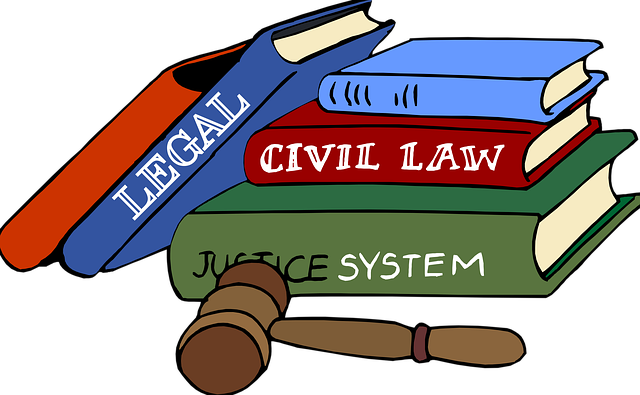Mastering healthcare legal frameworks is vital for navigating complex issues, including patient rights, privacy, and provider liability. Understanding Legal Grounds for Criminal Appeal in healthcare can significantly influence outcomes in disputes, especially high-stakes cases. Dynamic laws, subject to change, present a challenging yet essential landscape for practitioners who must interpret language and apply it to real-world scenarios. Robust evidence and documentation are crucial for establishing strong legal grounds, ensuring transparency, and defending against allegations. Navigating appeals processes demands deep understanding of frameworks and meticulous attention to procedure, with strategic appeals mitigating outcomes in white-collar and economic crimes.
In the dynamic landscape of healthcare, navigating legal complexities is paramount. This comprehensive guide delves into critical aspects of healthcare law, equipping professionals and enthusiasts with essential knowledge. We explore understanding healthcare legal frameworks, common pitfalls in medical malpractice cases, evidence and documentation best practices, and efficient appeals navigation. Furthermore, we shed light on significant legal grounds for criminal appeal within healthcare, providing a strategic edge in addressing evolving challenges.
- Understanding Healthcare Legal Frameworks
- Common Issues in Medical Malpractice Cases
- The Role of Evidence and Documentation
- Navigating Appeals Processes: Step-by-Step
- Legal Grounds for Criminal Appeal in Healthcare
Understanding Healthcare Legal Frameworks

Understanding healthcare legal frameworks is paramount when navigating complex issues within this critical sector. These frameworks govern everything from patient rights and privacy to provider liability and regulatory compliance. In the event of legal disputes, a robust comprehension of these regulations becomes pivotal. For instance, understanding legal grounds for criminal appeal in healthcare can significantly impact outcomes, especially in high-stakes cases involving general criminal defense strategies.
Healthcare laws are often nuanced and subject to change, creating a challenging yet dynamic landscape for practitioners. An unprecedented track record of navigating these intricacies can prove invaluable when defending against allegations or pursuing justice in medical malpractice suits. Proficiency in interpreting legal language and applying it to real-world healthcare scenarios is essential for ensuring the best possible outcomes for all involved parties.
Common Issues in Medical Malpractice Cases

Medical malpractice cases often arise from a range of common issues that can have significant consequences for both patients and healthcare providers. One of the primary areas of concern is negligence, where medical professionals fail to adhere to accepted standards of care, leading to injuries or adverse outcomes. This may include misdiagnosis, incorrect treatment plans, medication errors, and failures in patient monitoring. Such incidents can be detrimental, especially when they result in prolonged illnesses, disabilities, or even fatalities.
Another legal ground for criminal appeal in medical malpractice cases is the violation of patient rights. This includes issues related to informed consent, where patients are not fully apprised of potential risks associated with a procedure, and privacy breaches. High-stakes cases often involve complex scenarios, particularly when dealing with corporate and individual clients, requiring meticulous navigation through all stages of the investigative and enforcement process. These cases demand careful consideration of evidence, expert testimony, and legal precedents to ensure just outcomes.
The Role of Evidence and Documentation

In healthcare legal issues, evidence and documentation play a pivotal role. Robust records and authentic proof are essential to establish legal grounds for criminal appeal or other litigation. Accurate documentation ensures that medical decisions, treatments, and patient interactions are transparently recorded, providing a clear chain of custody for any legal dispute.
Across the country, the philanthropic and political communities recognize the importance of well-maintained evidence in healthcare. Respective businesses invest significantly in digital record-keeping systems to streamline documentation processes. This not only enhances efficiency but also strengthens the integrity of medical data, making it easier to defend against baseless allegations or navigate complex legal scenarios.
Navigating Appeals Processes: Step-by-Step

Navigating Appeals Processes involves a meticulous understanding of legal frameworks and procedural steps. The journey begins by evaluating legal grounds for criminal appeal, ensuring strong arguments are constructed based on errors during trial, insufficient evidence, or violations of constitutional rights. This initial phase demands meticulous attention to detail, as it sets the foundation for subsequent actions.
Proceeding with an appeal requires a systematic approach. Firstly, compile a comprehensive record of all relevant legal documents and evidence from the original case. Next, prepare a detailed brief outlining the issues to be appealed, supported by legal precedents and statutes. This is followed by filing the appeal with the appropriate court, ensuring adherence to deadlines and procedural rules. Throughout all stages of the investigative and enforcement process, it’s crucial to maintain clear communication with legal counsel, who can guide through complexities and advocate for achieving extraordinary results. For those involved in white collar and economic crimes, a strategic appeals process can significantly mitigate outcomes.
Legal Grounds for Criminal Appeal in Healthcare

When it comes to healthcare legal issues, understanding the legal grounds for criminal appeal is paramount, especially in cases involving serious allegations against medical professionals or institutions. The ability to mount a successful appeal can significantly impact the outcome for both corporate and individual clients. These appeals are based on specific legal principles that challenge the validity of a conviction or sentence.
In many jurisdictions, a key ground for criminal appeal is the argument that there was an error in the initial trial process, such as inadequate representation, procedural irregularities, or misinterpretation of evidence. This can lead to a complete dismissal of all charges, particularly if the errors are deemed substantial enough to compromise the fairness and integrity of the trial. Such appeals often spark public debate and scrutiny, especially when they involve high-profile cases across the country, highlighting the importance of meticulous legal examination at every stage of the healthcare sector’s legal process.
Healthcare legal issues are multifaceted, ranging from understanding complex frameworks to navigating appeals processes. By appreciating the nuances of medical malpractice cases and the crucial role of evidence and documentation, healthcare providers can mitigate risks. Moreover, familiarity with the steps involved in appeals and the specific Legal Grounds for Criminal Appeal in healthcare ensures fair outcomes. Ultimately, staying informed on these legal aspects fosters a safer and more accountable healthcare environment.






